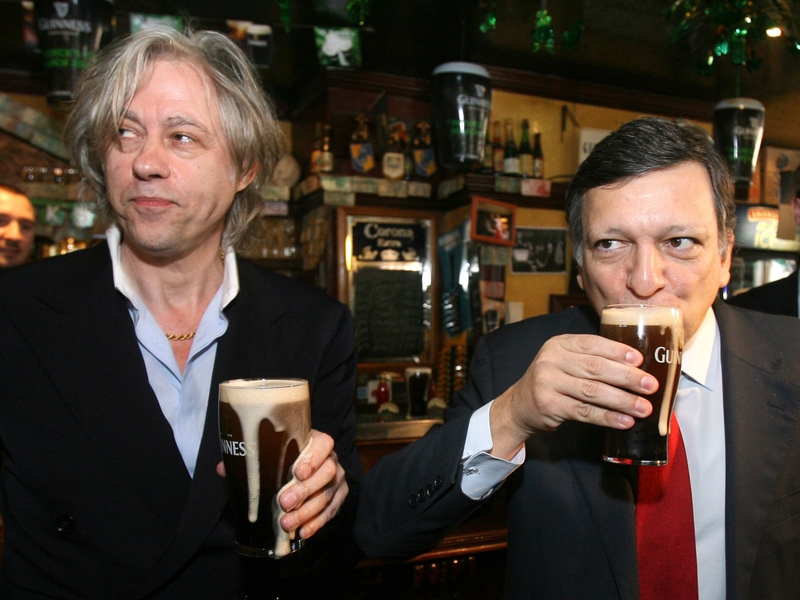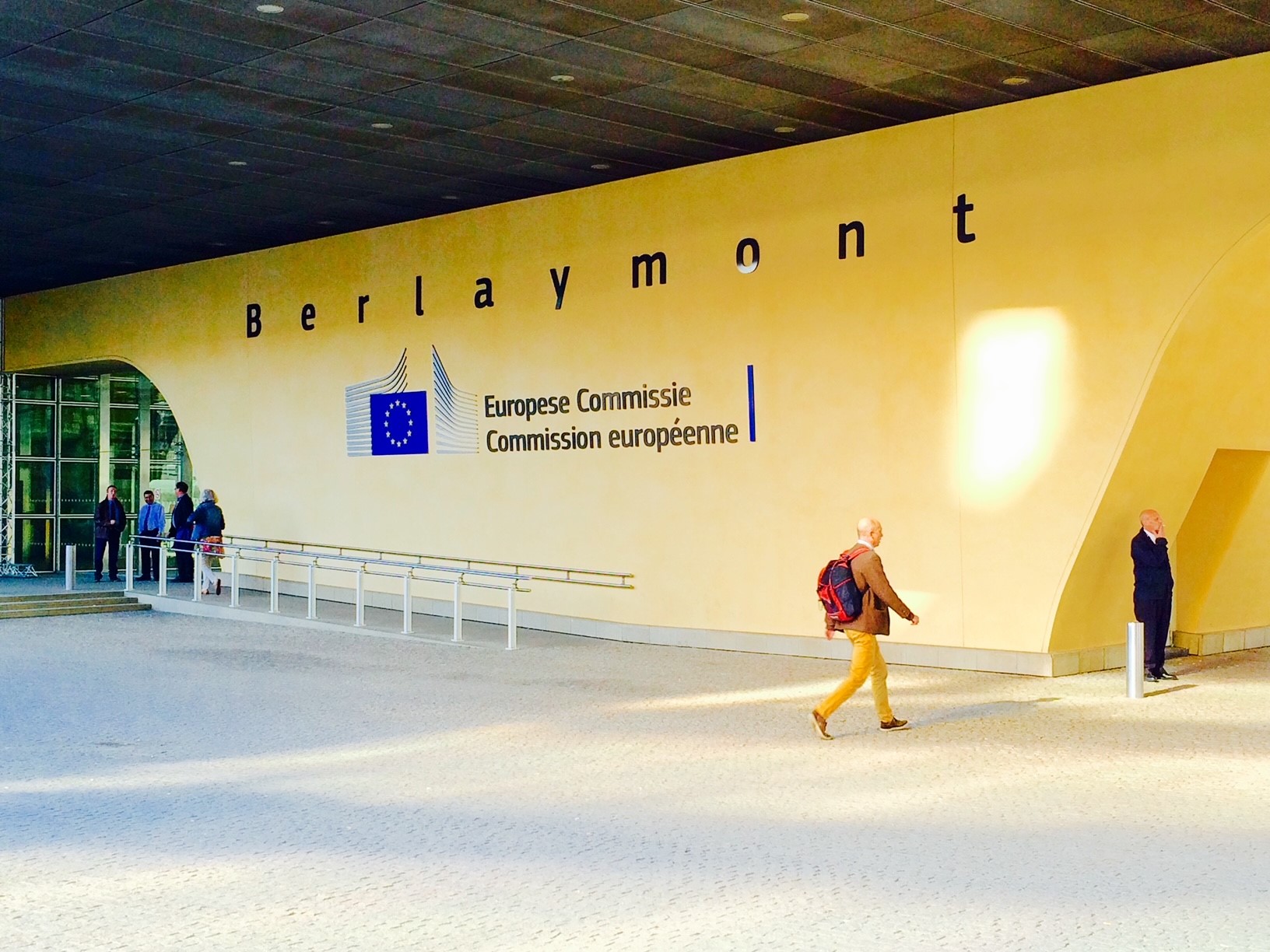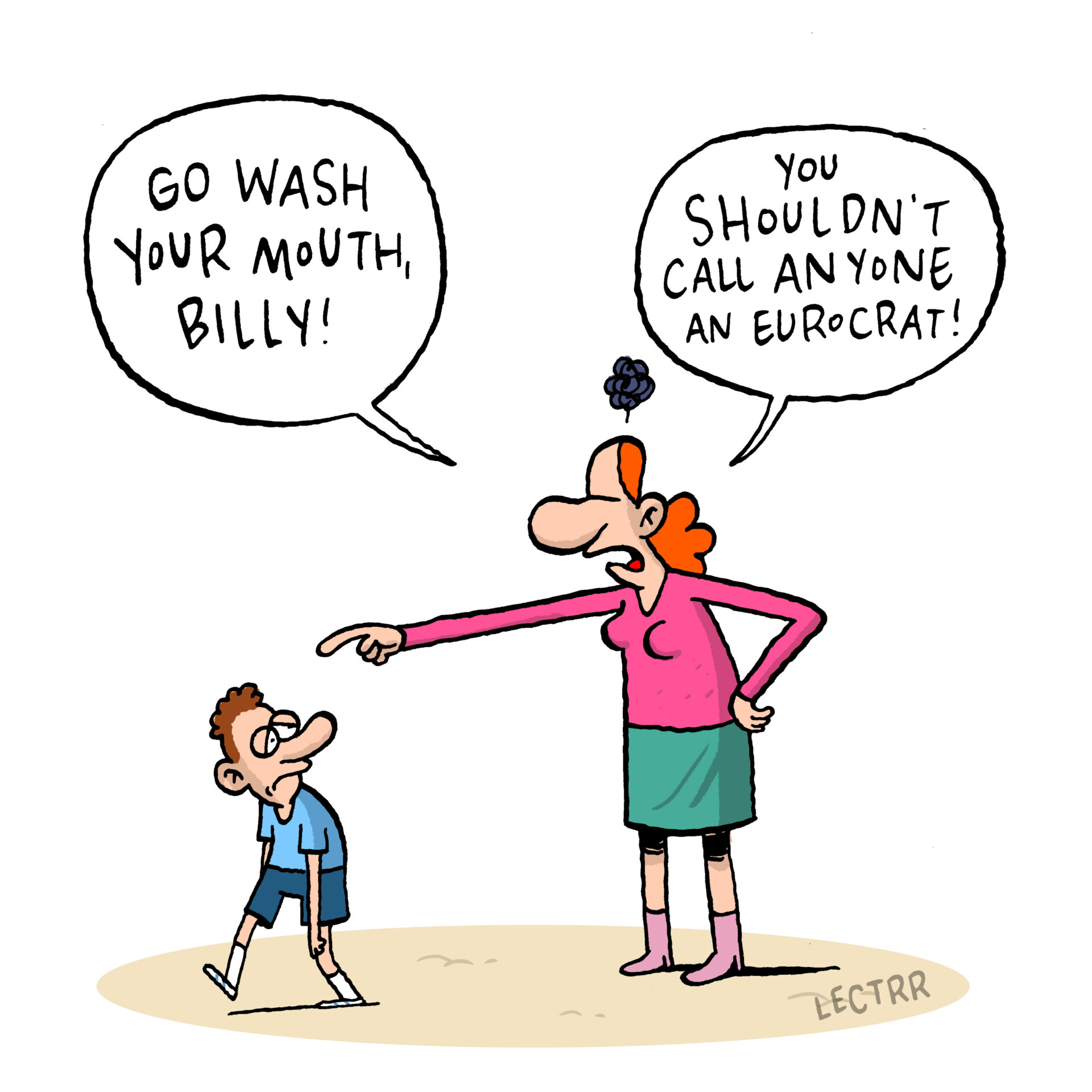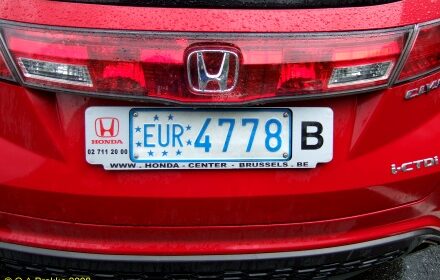EUROCRAT, definition (Cambridge English Dictionary): “An official, especially an important one, of the European Union.“EUROCRAT, definition (Collins Dictionary): “Informal, derogatory, a member, especially a senior member, of the EU”
If the first definition is correct, I’ll have to reconsider using the term for some of my good fonctionnaire friends who have not yet, and maybe never will, attain the rather vague status of “important” in the European Union hierarchy.
If the second definition is correct I’ll have to stop using the term entirely in case I accidentally offend those who see the word eurocrat, however it’s deployed, as a slur on their chosen career.
So where does that leave us?
It leaves turning to the only person who really knows the intent of the word eurocrat, and that is the person who invented it.
That person was Richard Mayne, a journalist and early-adopter dedicated europhile who coined the term eurocrat in 1961 when he was personal assistant to the very first European Commission President, Walter Hallstein.
At that time Richard applied it only to staff of the Commission, not to the rest of the evolving European institutions, but it inevitably became more widespread.
Obviously, Richard never intended it to be used as a derogatory term, but times change, and to opponents of the European project these days that’s all it is – a put-down.
Julien Etienne, a London School of Economics academic, clearly thought it was being used negatively when he wrote to a British broadsheet newspaper in 2011. He was responding to the paper’s report about, of all things, EU haircuts:
“Sir,” Julien wrote. “I thought the pejorative term eurocrat was reserved for tabloid coverage of European Union politics and administration. “The use of such language in the article ‘Eurocrats Scratch Heads Over Haircuts’ (September 9) does not satisfy the condition of objectivity that is the hallmark of serious journalism.”
Julien feared that eurocrat was always, and wrongly, being used negatively, and he may have also been miffed that the newspaper’s headline made fun of a very serious subject – haircuts. Not hair-on-your-head haircuts, but economic haircut measures.
The people vs the EU
So what do the good folk of Brussels, particularly in the European quarter, make of eurocrats (a capital E is optional) all these decades after Brussels became synonymous with the growth of the European project?
On your behalf I embarked upon extensive research for this article, which involved hanging around the Commission headquarters and asking passers-by: “Excuse me, sir or madam, as a resident of the city of Brussels, particularly this EU bit, what is your view of the eurocrats who live among us normal folk?”
Interestingly the most frequent response was to assume, as did Julien Etienne when writing to that newspaper paper in 2011, that my use of the word eurocrat was pejorative when, frankly, in the English language, there is no other term to describe them.
Anyway, after I explained that some of my best chums are eurocrats, many members of the normal public navigating the vast acres of the Brussels euroland (non-pejorative) on their way to work or lunch acknowledged that, while they certainly had nothing against eurocrats, and didn’t really pay much attention to them, there did have some grumbles about living alongside the whole EU circus on a daily basis.
Such as EU summits clogging up the streets with black limousine-loads of everyone from political bigwigs to bag-carriers and advisers, escorted by police outriders dashing about blowing whistles, sounding sirens, shutting off streets and making people take major detours to get to their homes while interminable political discussions ramble on into the night about harmonising mobile phone chargers or banning olive oil in refillable containers or dipping bowls from restaurant tables on hygiene grounds.
(Brussels veterans may recall that the olive oil fiasco only lasted six days in May 2013: as soon as the Commission announced the idea at its noon briefing, complete with a January 1, 2014 launch date, journalists and press photographers left the Berlaymont building to spread the news in local restaurants and get interviews and pictures. I targeted my favourite haunt, the Fiorentina on Rue Archimede along with several photographers. Every diner in the place thought it was some kind of hoax, as did most people throughout the EU. The Commission did one of the fastest U-turns in history, with EU Agriculture Commissioner Dacian Ciolos announcing: “I’ve been very alive to the debate in the press.”)
Coincidentally – or maybe not - a Pew Research Centre poll conducted at around the same time in eight of the EU countries, revealed that positive views of the EU were at or near their lowest point ever.
EUR a show-off
More generally, living alongside the ever-expanding eurocracy (non-pejorative) in the heart of Brussels has occasionally sparked outbursts against “overpaid eurocrats”(pejorative), and triggered minor but normally non-violent rebellions against unnecessary and often unintentional outbreaks of eurocratic (pejorative) ostentation.
I mean, was it wise in the early days of the-then European Economic Community (EEC) to offer Commission staff special “look-at-me” car number plates, beginning with the letters EUR? The plates were originally in a jazzy rich silver and blue metallic mix, like something you might see illuminated over a Las Vegas nightclub.
The EUR plates were later toned down to a less jazzy mid-blue colour, but were no less attractive to the ambitious going-places eurocrat. The plates were part of a decision to confer some equivalence to national embassy CD diplomatic status on EU officials but were optional. Many EU staff preferred the anonymity of normal Belgian number plates – with good reason.
Soon after I arrived here decades ago as a journalist (or hack, if you want to use the pejorative), I took my car for a routine garage check-up in Brussels and noticed in the workshop an EUR-plated BMW with a smashed rear window.
A mechanic was busy knocking out the remaining shards of glass ready for a replacement and explained that this sort of thing was on the increase in the city. When I looked concerned he grinned and said my little Renault 14 had no need to worry – the targets for envy were only cars with an EUR plate. It wasn’t a common problem, he said, but he’d had maybe five or six repair jobs in the space of a couple of months – either broken windows or deep scratches along paintwork.
One retired former EU official, whose EUR plate is now hanging like a work of art in his home, reluctantly agreed to speak to me on this sensitive subject, strictly on condition of anonymity.
“Most eurocrats never bothered with the special plates,” he confirmed, disguised behind dark glasses. ”But those who did were certainly not trying to impress or upset the citizens of Brussels. It wouldn’t work, because the Belgian public have been completely indifferent towards us for years. Sure, there may have been some envy early on, but over the years it’s become quite normal to have a eurocrat in your street, as an actual neighbour, in almost any part of greater Brussels – as long as it’s somewhere with trees and stuff, obviously.”
In that case, I asked him, who were these EUR-plated eurocrats, yourself included, trying to impress?”
There was a long pause. Then my anonymous source cracked: “All right! You win!” he said shaking his head.
“It’s true that they…….we….the EUR-plated officials, were dazzled by the glamour of our special blue plates. We couldn’t resist! But it was NOT to look superior to the citizens of Brussels. Like I say, it’s hard to impress them anymore.”
Another pause: “The truth is, if you must know, that some fonctionnaires, yes, me included, got high on the fact that our EUR-plates were considered pretty cool, I mean, not just here in Belgium but about everywhere else in Europe – even when other motorists had no clue what the EUR-plate represented. Especially when they hadn’t a clue! The best bit was when the car was parked and men, mostly, would ask where they could apply for one.”
As I left EUR-Plate Man pondering the good old days, I decided it’s probably a good thing that euro-plates no longer exist.
Europetrol pumps
Also no longer existing are a couple of fuel pumps which used to sit on the forecourt of the Commission’s Berlaymont headquarters, exclusively for topping up EU limousines and eurocrat’s own cars.
That certainly triggered some public eye-brow-raising and resentment many years ago. Word was that the fuel at the EU pumps was much cheaper than the public had to pay, but one former EU official insisted that the price was the same: the pumps were just more conveniently placed, and the fuel was paid for with coupons.
An underground, heavily-discounted supermarket designed just for eurocrats also disappeared years ago. Not many ordinary folk were aware of it, and it was closed by British politician Neil Kinnock when he was appointed as the EU Commissioner for Administrative Reform.
Why a cheap supermarket for “overpaid eurocrats”? Because, in the early days of the EU’s evolution more than half a century ago, such perks were seen as a necessary incentive – alongside good pay - to attract foreign talent to move to Belgium, which at the time was not the most glamorous place in Europe to work. Kinnock also reduced salaries for new eurocrats from mid-2004.
If there is still a them-and-us mentality in the heart of Brussels, it is very benign.
The good people of Brussels will tolerate the occasional endless limousine convoys, road closures and peacocking police outriders, knowing that being a resident in the acknowledged capital of Europe has brought the Belgian nation an estimated annual economic boost of 2%, some of which is generated by those ever-growing legions of eurocrats themselves residing here and investing in their host country.
In general, people understand what’s going on and why: some mentioned their pride that Brussels has remained completely at the heart of things, as the ‘Common Market’. And if, every time the circus of EU leaders and hangers-on sweep into town for their summits, some local residents have to make a detour to get to and from their homes for a couple of days, they’ll put up with it as long as the police and security teams are polite and smile a bit.
Oh yes, and then there’s the helicopters hovering overhead, which are very noisy but then, that just emphasises how Important Brussels is on the world stage, doesn’t it?
Bob and José chez Kitty
For sure the locals would probably like to see a bit more celebrity tipped into the Brussels EU mix, along the lines of the time not so long ago when Bob Geldof finished a press conference with President José Manuel Barroso in Commission HQ by insisting, completely spontaneously, that they both walk across the road and knock back some Guinness in Kitty O’Shea’s Irish bar.
We journalists rushed across to warn the bar staff and the place quickly filled up with journalists and passers-by as Bob and José dropped in, to rousing cheers from the very citizens the EU needs to keep on-side.
Talking of celebrities, I used to be in a band in which the other four members were eurocrats. And one day I inadvertently gave these eurocrats a very bad name.

Bob Geldof with the former European Commission President José Manuel Durão Barroso in the Irish bar in Schuaman, Kitty O’Shea’s.
We had been playing a lot of gigs in the EU area, and I decided to write an article about what grey-suited serious eurocrats get up to when they let their hair down after work. I thought it would make these “faceless eurocrats”, as the British tabloid press routinely described them, look more human and relatable.
It didn’t quite work. Part of my piece described how one night our singer, modelling himself as usual on Mick Jagger and Alice Cooper started stamping his foot to the beat a bit too energetically for the low but flimsy stage on which he was posing.
Suddenly one of his black-leather-trousered legs punched through the thin wooden planks and he couldn’t extract his foot and ankle for several minutes as we continued playing despite fits of giggles.
When the article containing the above anecdote became the cover story in a magazine back in the last century, our singer’s EU departmental boss threatened to sack him for bringing the EU into disrepute. For days I felt terrible for his lost future, but common sense prevailed and the rock-horror crisis slowly faded away – and I’m proud to say that all four of my fellow groovers in the band went on to have successful EU careers including one director-generalship, and one deputy head of an EU representation office abroad.
Finally, a clarification: I mentioned earlier that the EUR-plate was a thing of the past, but it isn’t quite. The EUR plate has certainly gone, but, as I’m sure all nerdy eurocrat spotters know, a less obvious indication of eurocrat status now adorns some cars in the city.
It’s a normal Belgian number plate, but instead of the current two at the start of the sequence of numbers and letters, the eurocrat version begins with a nine.
Not as eye-catching as an EUR plate – unless the message is: “If you’ve got a nine, you’re doing fine…..”




